News & Media
In repurposing education, leave no student—or university—behind
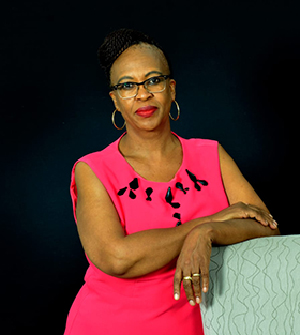
Prof Mpine Makoe (Incumbent: CoL Chair: OER/OEP, Unisa)
Improving access to higher education is not only about opening doors to more people, says Professor Mpine Makoe, director of open, distance, and e-learning (ODeL) at the University of South Africa. In thinking beyond Covid-19, universities should also strive for greater inclusivity, equity and quality—especially in countries where there is a development backlog.
Higher education after the pandemic should not leave any student behind, agreed presenters at a webinar on 27 May hosted by the Alliance for African Partnership, a consortium of 11 universities in Africa and Michigan State University in the United States.
It should also not leave any university behind, said Professor Tawana Kupe, vice-chancellor of the University of Pretoria. To achieve this, there need to be new forms of support. For instance, in e-learning, Makoe pointed out, student support should be embedded in course resources as it has been in ‘traditional’ distance education, as well as in university units.
"Dialogue #3—Educational access at higher education institutions in the age of Covid-19" was the third in a six-part dialogue series on universities and Covid-19. University World News—Africa is one of the partners.
Access challenges
Opening the webinar, moderator Professor Paul Zeleza, vice-chancellor of the United States International University-Africa in Kenya, said that in terms of access, there were three major COVID-inspired challenges facing governments, international and inter-governmental agencies, and institutions.
"First, slowing and stopping the spread of the pandemic. Second, how best to mitigate the extensive and damaging effects of the pandemic in the immediate and short term. Third, how to ensure survival and growth after the pandemic."
The impact of Covid-19 in terms of educational access can also be seen in three ways.
First, said Zeleza, is institutional capacities to manage the crisis. Many universities have faced a chronic lack of infrastructure to deliver e-learning resources, under-preparedness among students and staff, and gaps in their access to computers and the internet.
Second, when educational institutions reopen, what will their level of preparedness be to continue mitigation efforts in terms of social distancing and other health measures?
A third issue is ensuring quality and equity. Faculty and students must be trained in the optimal use of online teaching and learning. "There is a need to implement remote learning platforms that optimise reach and equity, and promote targeted outreach to disadvantaged groups." Also, curricula must be adapted to enhance the feasibility and effectiveness of remote learning. "A final issue is integrity of assessment and examinations."
Regarding recruitment and enrolment, Covid-19 has wreaked havoc.
Devastated economies will erode the capacity of governments to fund universities, and of (especially poorer) families to pay student tuition and living costs. How can universities leverage more aid for needy students? In many countries, school and university entrance exams have been postponed, shrinking the pipeline of available students.
Many universities have seen their international student market dry up. Some have sought overseas partners where students can temporarily enrol; some are trying to make online education delivery work better for students overseas; and others are working to create a sense of community for international students, such as via supportive alumni networks.
Intriguingly, Zeleza suggests this might be a good moment for African universities to close the gap between outbound and inbound international students. According to UNESCO, Africa counts for 10.35% of the world’s outbound students who totalled 5.3 million in 2017, against 4.26% of inbound students. Can some Africans who are planning to go abroad be tempted to study in local universities?
Guiding principles
Professor Makoe told the webinar that three principles guide her approach. First, education is a fundamental human right, without which many people are unable to reach their potential. Second, education is a public good, not a commodity. "It is something that all of us need access to." Third, education ensures equitable access to life opportunities.
The University of South Africa, or Unisa, was founded as an examining body and became a dedicated teaching university in 1946. It is Africa’s largest distance university, with more than 400,000 students across the continent and the world.
Unisa has enabled access because it is a distance learning university, and has supported inclusivity and flexibility. Anybody can study anything, anywhere and whenever they like.
Covid-19 poses threats to access, Makoe said. For instance, it has forced many people to stay home—including 1.6 billion children and youth. As a result, there will have been losses in learning and increased drop-out rates are likely going forward. Further, progress towards the Sustainable Development Goals will be reversed.
Since Covid-19 lockdowns, online education has provided a stop-gap solution. But it has starkly highlighted the challenges of the digital divide, which has excluded many people from participating in education during the pandemic, especially in developing contexts.
Critical for support
As much as ‘contact’ universities have wanted learning to continue online, most have not had the skills and competencies to do so effectively. "Online learning requires structures, systems and resources to support it. These are completely different from face-to-face systems," said Makoe, who is also the director of the African Council for Distance Education.
Infrastructure is crucial for online education, as are different types of education technology. Unisa draws on different technology combinations to widen access to different types of students. For instance, some students with limited internet access use a USB packed with course materials. "They work offline, and only go online when they upload info and when they work in the materials." Mobile learning is critical, as many Africans have access to it.
Support for students is also critical. Unisa students study on their own. "Therefore, support must be integrated into the programme itself; it is not separate entity," said Makoe.
"Students have to be supported cognitively within the study material, they have to be supported emotionally, they also have to be supported administratively. All these different types of support are integrated within the learning materials."
In early March, Makoe launched a pilot initiative that has helped some 300 school teachers with the transition online, for instance introducing them to open educational resources and mobile learning, study groups and ways of using the online space for teaching.
"It’s a short programme but the idea is to introduce teachers to the concept of what online learning means and how different it is," said Makoe. "And we make sure that we include issues of accessibility, inclusivity, equity and connectivity."
As universities have planned for and responded to the coronavirus crisis, they have also had to plan for post-Covid-19. "We should strive for an education system that is inclusive, equitable and accessible, and that enables parity of participation," she concluded.
"As we are rethinking education beyond Covid-19, colleagues, we need to come to an understanding that it should not exclude anyone." By developing study materials for the lowest common denominator, it is possible to pick up students who are struggling and support them to achieve the level they need. That is what equity is all about.
* By Karen MacGregor | 4 June 2020
This article was first published by University World News. You can read the original here.
Follow University World News on Facebook
Publish date: 2020-06-05 00:00:00.0

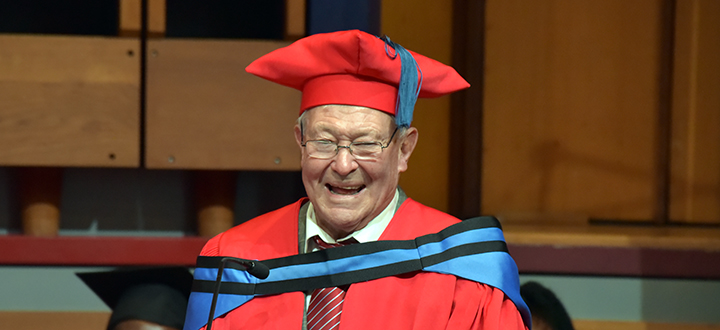 Community champion and agricultural entrepreneur extraordinaire honoured by Unisa
Community champion and agricultural entrepreneur extraordinaire honoured by Unisa
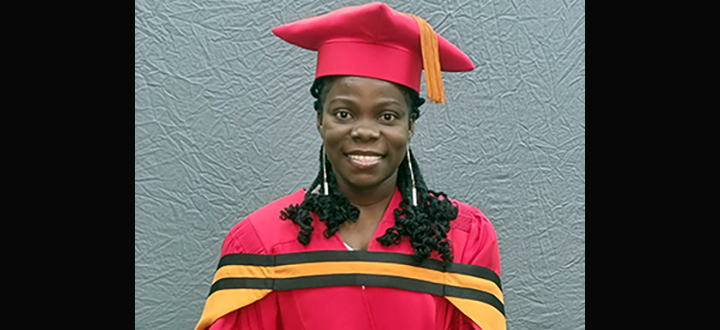 Ghanaian-born Swede earns PhD in Information Sciences from Unisa
Ghanaian-born Swede earns PhD in Information Sciences from Unisa
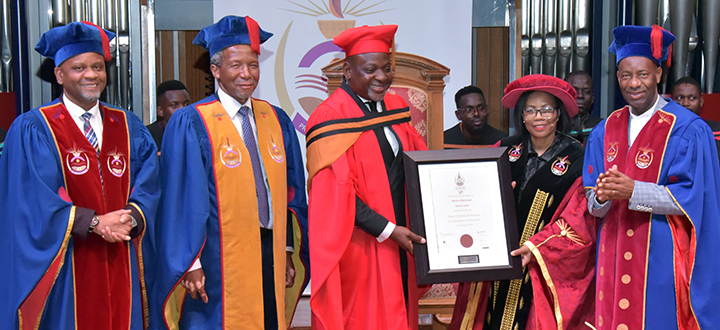 Unisa awards honorary doctorate to exemplary philanthropist and entrepreneur Collen Tshifhiwa Mashawana
Unisa awards honorary doctorate to exemplary philanthropist and entrepreneur Collen Tshifhiwa Mashawana
 Inhlanyelo Hub explores financing and sustainability at the International Conference on Business Incubation
Inhlanyelo Hub explores financing and sustainability at the International Conference on Business Incubation
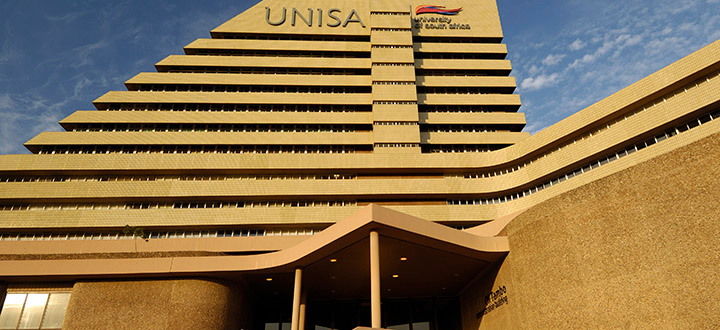 Unisa remains anchored among the waves
Unisa remains anchored among the waves